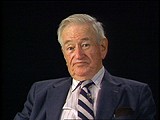You searched for: 数字货币游戏,加密货币游戏,数字币游戏,ust博彩游戏,【www.2266.com,复制打开网址】,unit泰达币博彩网站,区块链游戏排名,区块链游戏nft,区块链游戏平台,nft游戏有哪些,nft是什么游戏,以太坊游戏,区块链游戏赚钱网站,币圈游戏,区块链博彩平台,网址kaefhfkccdckbghcd
<< Previous | Displaying results 1561-1570 of 1752 for "数字货币游戏,加密货币游戏,数字币游戏,ust博彩游戏,【www.2266.com,复制打开网址】,unit泰达币博彩网站,区块链游戏排名,区块链游戏nft,区块链游戏平台,nft游戏有哪些,nft是什么游戏,以太坊游戏,区块链游戏赚钱网站,币圈游戏,区块链博彩平台,网址kaefhfkccdckbghcd" | Next >>
-
Bella Jakubowicz Tovey describes the confiscation of her family's property
Oral HistoryBella was the oldest of four children born to a Jewish family in Sosnowiec. Her father owned a knitting factory. After the Germans invaded Poland in 1939, they took over the factory. The family's furniture was given to a German woman. Bella was forced to work in a factory in the Sosnowiec ghetto in 1941. At the end of 1942 the family was deported to the Bedzin ghetto. Bella was deported to the Graeben subcamp of Gross-Rosen in 1943 and to Bergen-Belsen in 1944. She was liberated in April 1945, and…
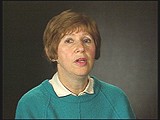
-
Thomas Buergenthal describes the difficulties involved in postwar migrations
Oral HistoryThomas's family moved to Zilina in 1938. As the Slovak Hlinka Guard increased its harassment of Jews, the family decided to leave. Thomas and his family ultimately entered Poland, but the German invasion in September 1939 prevented them from leaving for Great Britain. The family ended up in Kielce, where a ghetto was established in April 1941. When the Kielce ghetto was liquidated in August 1942, Thomas and his family avoided the deportations to Treblinka that occurred in the same month. They were sent…
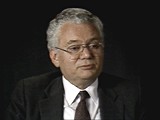
-
Rene Slotkin describes experiencing antisemitism in school in postwar Kosice
Oral HistoryRene and his twin sister Irene were born Rene and Renate Guttman. The family moved to Prague shortly after the twins' birth, where they were living when the Germans occupied Bohemia and Moravia in March 1939. A few months later, uniformed Germans arrested their father. Decades later, Rene and Irene learned that he was killed in the Auschwitz camp in December 1941. Rene, Irene, and their thier mother were deported to the Theresienstadt ghetto, and later to Auschwitz. There, the twins were separated and…
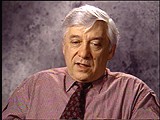
-
Irene Hizme describes life in a Catholic orphanage in postwar France
Oral HistoryIrene and her twin brother Rene were born Renate and Rene Guttmann. The family moved to Prague shortly after the twins' birth, where they were living when the Germans occupied Bohemia and Moravia in March 1939. A few months later, uniformed Germans arrested their father. Decades later, Irene and Rene learned that he was killed at the Auschwitz camp in December 1941. Irene, Rene, and their mother were deported to the Theresienstadt ghetto, and later to the Auschwitz camp. At Auschwitz, the twins were…
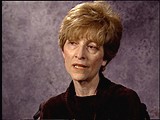
-
Abraham Klausner describes postwar efforts to reunite survivors
Oral HistoryRabbi Abraham Klausner was a US Army military chaplain. He arrived in the Dachau concentration camp in May 1945. He was attached to the 116th evacuation hospital unit and worked for about five years in displaced persons camps, assisting Jewish survivors.
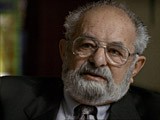
-
Madeline Deutsch describes her postwar experiences
Oral HistoryMadeline was born into a middle class family in an area of Czechoslovakia that was annexed by Hungary in 1938-1939. Her father worked out of their home and her mother was a homemaker. Madeline attended high school. In April 1944 her family was forced into a Hungarian ghetto. The family lived in the ghetto for two weeks before being transported to Auschwitz. Madeline and her mother were separated from her father and older brother. Neither her father nor brother survived the war. A week after arriving in…
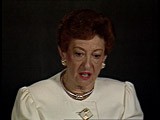
-
George Salton describes liberation by American forces
Oral HistoryGeorge was liberated by the American forces in May 1945. He had spent three years during the war in ten different concentration camps. In 1945 he was in the Woebbelin camp in Germany. After liberation, he spent over two years in various displaced persons camps. George immigrated to the United States in October 1947.
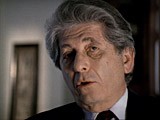
-
Martin Strauss describes German soldiers searching his family at the German border with Italy
Oral HistoryIn 1938, Martin's father was imprisoned during Kristallnacht (the "Night of Broken Glass"). Upon the intervention of the family's chauffeur, a gentile, Martin's father was released after three days. The family obtained visas to immigrate to Palestine and left Germany in 1939. Martin aided "illegal" immigrants who defied British restrictions on immigration into Palestine. He was imprisoned by the British in 1947 and forbidden to live in Palestine. He then came to the United States.
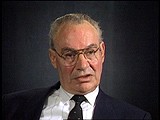
-
Hessy Levinsons Taft describes father's attempts to obtain visas for the family to emigrate from Nice, in the south of France
Oral HistoryAs prewar antisemitism intensified, Hessy's family fled from Germany to Paris, France. France fell to the German army in June 1940. Hessy's family was smuggled into the "zone libre" (free zone) in southern France. The family received a US visa in 1941, but was unable to leave before the visa expired and could not obtain an extension. In 1942, the family obtained visas to enter Cuba, where they settled before immigrating to the United States in 1949.
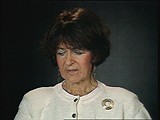
-
Henry J. Kellermann describes the reactions of defendants during the Nuremberg Trial
Oral HistoryHenry received a Doctor of Law (J.D.) degree from the University of Berlin in 1937. Sponsored by the rabbi of the Baltimore Hebrew congregation, Henry immigrated to the United States in the same year. In 1945, the Office of Strategic Services (OSS) assigned him to prepare pre-trial briefs for the International Military Tribunal held in Nuremberg, Germany. He interrogated a number of witnesses and defendants. After the war, he held various diplomatic posts.
